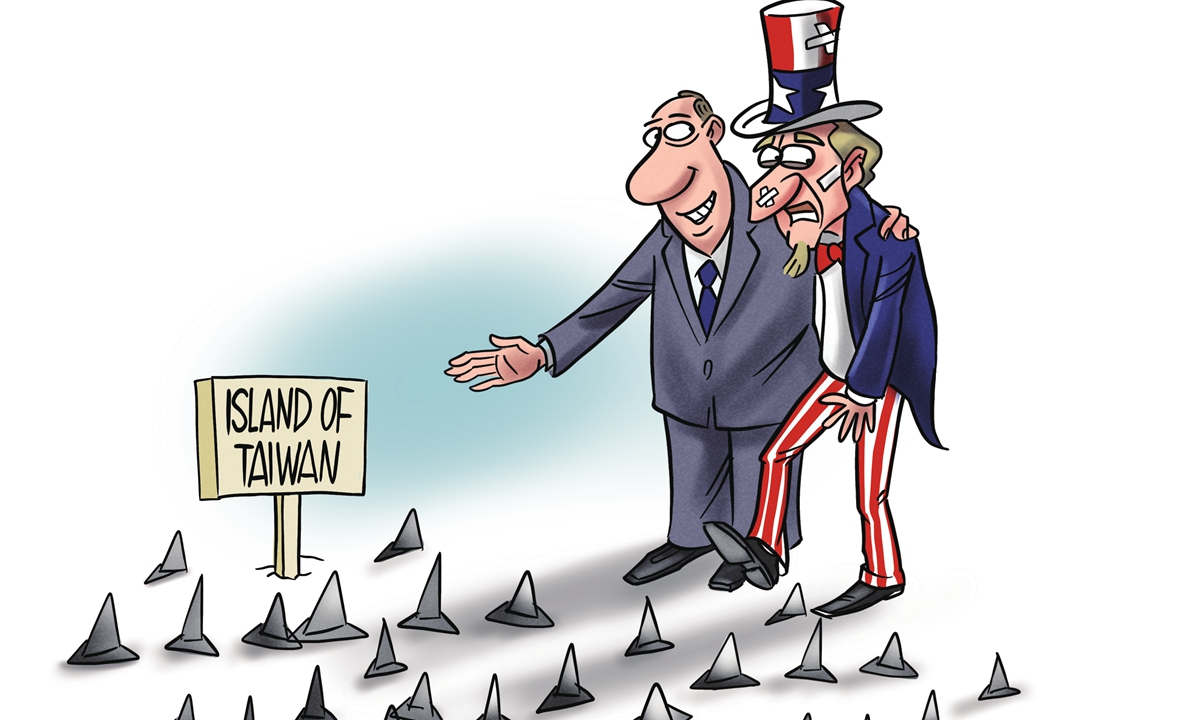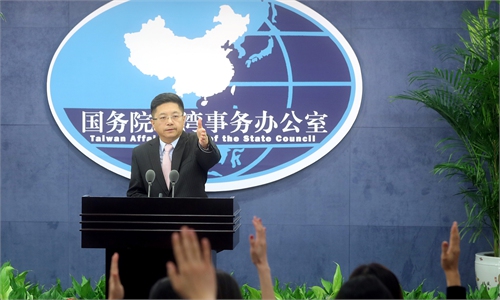
Illustration: Liu Rui/GT
A bipartisan duo of US senators on Friday introduced the so-called "Taiwan Policy Act of 2022," which represents "the most comprehensive restructuring of US policy towards Taiwan, since the Taiwan Relations Act of 1979," claimed the bill's sponsors.
The introduction of the "Taiwan Policy Act of 2022" followed the two sponsors, Republican Senator Lindsey Graham and Bob Menendez, Democratic chairman of the Senate Foreign Relations Committee, making a trip to Taiwan island in April and meeting with the island's regional leader Tsai Ing-wen.
The bill intends to provide almost $4.5 billion in security assistance to the island of Taiwan over the next four years and designate Taiwan as a "major non-NATO ally (MNNA)."
According to a White House document, the island is already considered an MNNA even without formal designation. The same fact sheet claims MNNA status doesn't entail any security commitments, even though it provides some military and economic privileges.
However, if one takes a look at some of the countries being designated as MNNA, they will find nations like Australia and Japan - the US' hardcore allies. How can this not be concerning against the backdrop of increasingly closer ties between Washington and Taipei?
The Biden administration has been trying to expand Washington's military aid to the Taiwan island. Days before the bill's introduction, Washington officials began annual security talks with the island to discuss the enhancement of military cooperation and coordination of security strategy.
Therefore, it is very concerning that an official MNNA status designation to the Taiwan island may imply the beginning of an official alliance between the US and Taiwan with more serious security commitments to follow.
If so, it means Washington takes a big step backward regarding China-US ties. When the Chinese mainland and the US formally established diplomatic relations four decades ago, Washington ended its "mutual defense" treaty with the Taiwan authorities - in other words, the US formally stopped the US-Taiwan alliance.
Menendez and Graham's Taiwan bill is more about political grandstanding and posturing. As the November US mid-term elections approach, the move could be a way to attract potential voters. The anti-China politicians on Capitol Hill only care about their short-term political gains, disregarding the bill's long-term damage to China-US relations.
In the eyes of the politicians, the US' one-China policy has just become their lip service. Washington has repeatedly claimed that there is only one China in the world, and its Taiwan policy is unchanged. But Washington's actions tell a different story that some US politicians keep provoking China over the Taiwan question to test China's bottom line.
A US government official familiar with the "Taiwan Policy Act of 2022" told Reuters on Friday that some elements of the bill have disconcerted the Biden administration and the State Department, admitting the bill would antagonize China. Another bill aimed at enhancing the US' competitiveness with China has been stalled in Congress for months.
The South China Morning Post reported on Saturday that Liu Pengyu, spokesperson for China's embassy in the US, urged Congress to "stop advancing the act" and warned of "resolute countermeasures" in response to a question about the bill.
Since the campaign for US mid-term elections will soon begin, it is very likely US lawmakers will be too busy to deal with this bill.
However, political manipulations by those anti-China politicians in Washington won't end soon. We still need to keep our alert, because their manipulation may deceive some US voters and send the Taiwan authorities a wrong signal. At the same time, we should let our "resolute countermeasures" speak for themselves in a louder way.
The article was compiled by Global Times reporter Xia Wenxin based on an interview with Yuan Zheng, a deputy director and senior fellow of the Institute of American Studies, the Chinese Academy of Social Sciences. opinion@globaltimes.com.cn



